RCMP has a history of failing to follow outside advice after deadly events
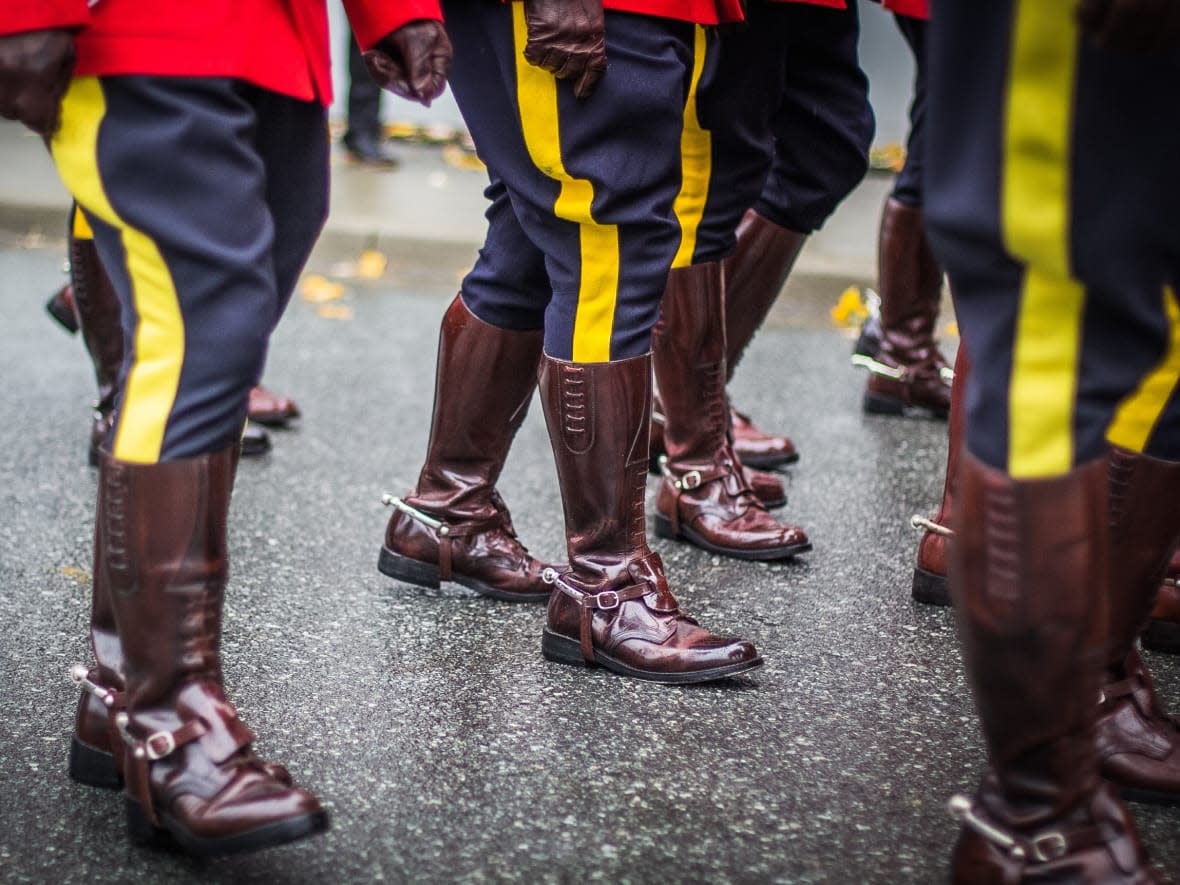
The RCMP has an uneven record when it comes to implementing recommendations and guidelines following tragedies, according to a CBC News analysis.
And that raises concerns as the inquiry into the Nova Scotia mass shooting winds down and a probe of the horrific recent stabbing rampage in Saskatchewan gets underway.
Ten people were left dead and another 18 were injured in the James Smith Cree Nation area and in the nearby village of Weldon, Sask., over the Labour Day weekend. Those numbers do not include Myles Sanderson and Damien Sanderson, who were facing charges tied to the rampage before they died last week.
Many details about what occurred and how police responded are still not known. The Saskatchewan RCMP has asked the Saskatoon Police Service and the Saskatchewan Incident Response Team — the independent, civilian-led organization that investigates serious incidents involving police officers in the province — to conduct an external investigation of the circumstances surrounding the incident.
Its findings will join a collection of landmark reports that have looked into various issues within the RCMP, ranging from crime scene containment and policing in rural areas to the RCMP's internal culture.
A review of those reports' findings suggests the RCMP has a history of not following through on their recommendations.
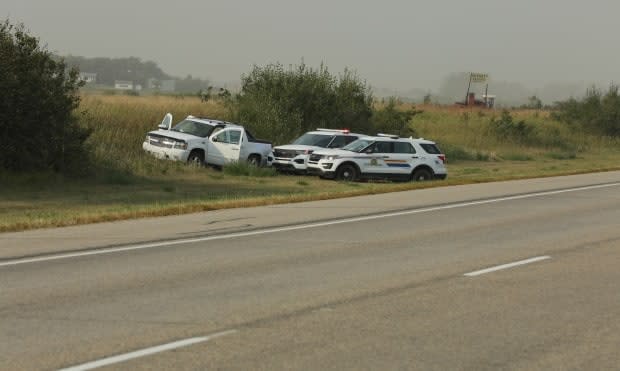
"The RCMP is resistant to change," said Christian Leuprecht, a professor at the Royal Military College's department of political science who has studied RCMP oversight.
"It's tragic because this is the largest police force in the country, with 17,000 members. It's got to set the gold standard."
In 2014, the RCMP brought in retired assistant commissioner Alphonse MacNeil to review the events surrounding a shooting spree in Moncton, N.B. that left three members of the Codiac RCMP detachment dead and two others wounded.
As part of that review, MacNeil examined recommendations made in the wake of two other violent events — the murders of four RCMP members in Mayerthorpe, Alta. in 2005 and the deaths of two officers during a police pursuit in Spiritwood, Sask. in 2006.
While many of those recommendations were acted on by the RCMP, MacNeil also pointed to policy implementation failures.
For example, despite a warning contained in the outside report on the Mayerthorpe incident from nine years earlier, MacNeil reported guidelines on securing potential crime scenes were not followed by the RCMP officers who responded to the Moncton tragedy.
RCMP has a 'moral contract' with its officers: report
"The Moncton incident had multiple scenes, however, there was no indication members were aware or used the current policy," MacNeil wrote.
RCMP officers in Moncton hadn't been equipped with hard body armour, despite the fact that the post-Mayerthorpe report recommended it. MacNeil also pointed out that delivery to members of the Codiac RCMP of carbine weapons — short-barrelled rifles that have a longer accurate range than sidearms or shotguns — had taken too long despite the previous reports' findings.
"Learning from tragedy has to be followed by effectively dealing with identified shortcomings," MacNeil wrote back in 2014.
"The force has an obligation to take actions to protect its members, and it must act promptly to do so, not solely for statutory reasons but because of the moral contract it has with the members it sends into harm's way."
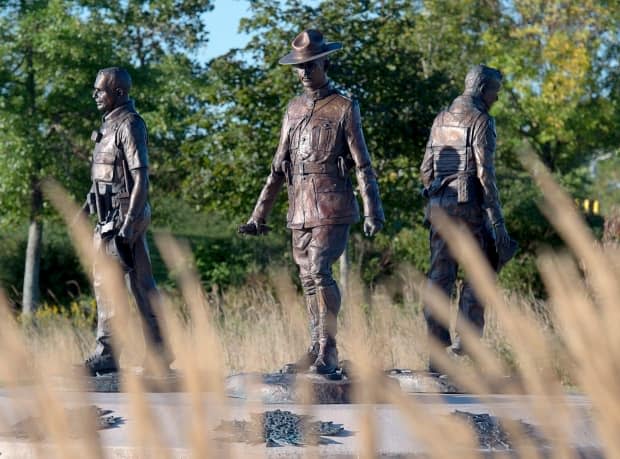
The RCMP's failure to act on MacNeil's recommendations has been raised in the course of the Mass Casualty Commission, the inquiry reviewing the 2020 mass shooting in Nova Scotia — which left 22 people dead — and the RCMP's handling of it.
While the commanding officer of the RCMP in Nova Scotia at the time, the now-retired assistant commissioner Lee Bergerman, told the commission the division was "very passionate about the implementation" of MacNeil's report, other Mounties testified that they had not been trained on the report's recommendations.
Retired staff sergeants Jeff West and Kevin Surette, two of the RCMP officers in charge of the response to the 2020 incident, both told the Mass Casualty Commission in May of this year that they did not know if any of MacNeil's recommendations actually had been implemented.
And Chief. Supt. Chris Leather, one of the top Mounties in the province at the time of the shooting, told the commission he was not aware of any kind of formalized training plan based on MacNeil's report.
"I've not seen or felt an organizational initiative to sustain the momentum that the MacNeil recommendations would have created certainly in the 2017 timeframe," he said during his July testimony.
"Personally, I can't say that the MacNeil report and recommendations made any difference in this division."
Moncton finding 'could have prevented deaths': lawyer
Lawyer Tara Miller represents the mother-in-law of one of the 2020 massacre victims — Kristen Beaton.
Beaton, who was pregnant with her second child at the time, was killed by Gabriel Wortman while on her way to work as a continuing care worker on April 19, 2020.
Miller said one of MacNeil's recommendations — "to identify entry/exit points and major transportation routes that should be alerted and monitored in the event of a relevant crisis" — doesn't appear to have been followed during the Nova Scotia rampage, since the gunman was able to travel nearly 200 kilometres before he was killed.
"That is the one that we say would have prevented or could have prevented deaths," she said.
"That was the direct impact, we believe, of a failure to execute and implement a recommendation stemming from the MacNeil report that had consequences that flowed from all of those who died after the perpetrator travelled through the Truro area."

Miller called the disconnect between what senior RCMP commanders think has been done and what happens on the ground a "huge gap."
She said her client "does not want the legacy of her family member's death and this participation in the commission to be a lovely written document that sits on the shelf" and is never acted upon by the RCMP.
'I can't give you a why': Lucki
RCMP Commissioner Brenda Lucki said she doesn't know why recommendations have not been passed on to frontline officers.
"Obviously, policies were put in place and, as you point out, some of the policies weren't enacted at the time of the Moncton event. And ... I can't give you a why, why it happened," she said when she took questions at the Mass Casualty Commission inquiry last month.
"Did we properly communicate that to the people, to the frontline members? I'm not sure. Maybe we didn't."
A spokesperson for the RCMP said the organization knows it needs to do better.
"Tragic events continue to highlight the importance of continual improvements focusing on public and police safety," said Camille Boily-Lavoie.
"We acknowledge that more work needs to be done, and we will continue to implement changes to improve the organization and earn the trust of Nova Scotians and all Canadians."
While she was before the inquiry, Lucki also faced questions about why there have been few changes to RCMP policy in the more than 28 months since the Nova Scotia shooting, especially in areas like training and resources in rural areas.
In the immediate aftermath of the gun massacre in Nova Scotia, the RCMP came under intense criticism for failing to equip members with GPS software, dismissing descriptions of the killer's replica police car, failing to set up roadblocks, failing to locate some bodies for nearly 19 hours and sending public updates through Twitter.
WATCH | Can Mounties learn from past tragedies?
The RCMP also has been criticized for failing to act for years on complaints about the gunman — which included allegations of domestic violence, death threats against family members and tips that he owned illegal guns.
"You've not instituted any material changes," Josh Bryson, the lawyer who represents the family of shooting victims Joy and Peter Bond, told Lucki last month during a commission hearing.
"You've missed valuable learning opportunities for those cadets who are now members. You could've been teaching them your findings, best practices of what came out of Portapique [Nova Scotia]."
One lesson the RCMP appears to have learned from past tragedies regards the use of the alert ready system. The force was widely condemned after the Nova Scotia shooting for issuing public updates via Twitter. The RCMP initiated an Alert Ready policy two years later; during the Saskatchewan incident, Mounties sent a dangerous-persons alert to citizens' phones.
After Lucki wrapped up her two days of testimony before the Mass Casualty Commission, its lead commissioner, former chief justice of Nova Scotia Michael MacDonald, pleaded with her to heed the commission's final recommendations.
"We've seen recommendations come and go, and these have to be implemented. As I say, not for us, but for the memories, and for all the harm that's been done," he said.
"I am passionately imploring you as a person in a powerful position to champion those recommendations ... to ameliorate some of the suffering, and so that the lives lost will not be in vain."
Marshall recommendations 'largely unfulfilled': former partner
The former partner of Donald Marshall Jr., the man at the centre of one of Canada's most infamous wrongful conviction cases, told MacDonald and the other commissioners that they'll need to build accountability tools into their report to keep governments and police on track.
Marshall, a Mi'kmaq of Membertou, N.S., was wrongfully convicted of murdering his friend, Sandy Seale, in Sydney's Wentworth Park. Marshall was just 17 years old when he received a life sentence for the murder.
He was exonerated by a Royal Commission in 1990 that concluded systemic racism had contributed to his wrongful imprisonment.
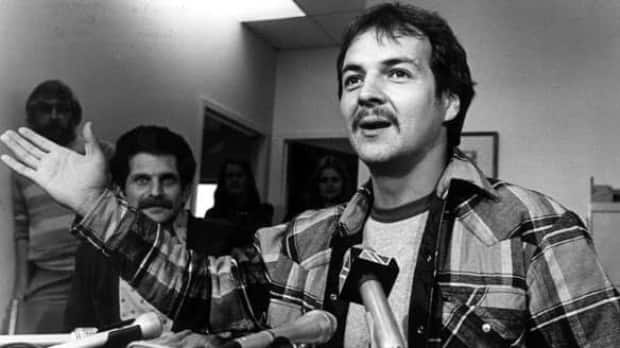
The inquiry's final report called for sweeping changes to the province's criminal justice system. One recommendation that was acted on led to the establishment of a Mi'kmaw police service in Cape Breton — but it failed when the Unama'ki Tribal Police Service folded in 2001. Indigenous leaders said at the time that federal and provincial funding was inadequate to sustain the force.
"There was a good deal of energy put into making sure the low-hanging fruit got picked and eaten," L. Jane McMillan, Marshall's former partner and a special adviser on Indigenous research at St. Francis Xavier University in Antigonish, N.S., told the commission last week.
"But the longer, most systemic changes that the Mi'kmaq would prefer to see were very sporadic, uneven and largely unfulfilled ... That accountability piece is not something that was written into the Marshall inquiry recommendations."
A review of another high-profile incident — the October 2014 shooting on Parliament Hill — pointed to a trail of previous reviews and reports by the RCMP, the Office of the Auditor General, parliamentarians, federal departments and individuals focusing on the security of the parliamentary district.
"All of these reports have resulted in numerous recommendations similar to those proposed in this review," its authors wrote.
"Unfortunately, few of these recommendations have been implemented."
Watchdog has flagged verification gaps
Getting a sense of how well the RCMP has acted on recommendations has been a struggle for its watchdog.
The Civilian Review and Complaints Commission (CRCC) is called upon hundreds of times a year to investigate public complaints about RCMP activity — complaints ranging from claims of bad behaviour to allegations of botched investigations. If the CRCC concludes a finding of wrongdoing is founded, it can make recommendations to the RCMP, although they are not binding.
The watchdog has objected in the past to its inability to follow up on the RCMP's responses to complaints.
In one of its more prominent reports in recent years, the CRCC reviewed the RCMPs response to the death of Colton Boushie, who was shot and killed after he and four others from the Red Pheasant Cree Nation in Saskatchewan drove onto white farmer Gerald Stanley's property near Biggar, Sask., in August 2016. In February 2018, a jury found Stanley, 56, not guilty of second-degree murder or manslaughter.
The watchdog's report pointed to staffing issues at the detachment and raised serious concerns about how the RCMP communicated with Boushie's family. The CRCC also said officers mishandled witnesses and evidence in the controversial case.
Lucki publicly accepted all of the watchdog's recommendations — but it's very hard to tell from the outside whether the force followed up on any of them.
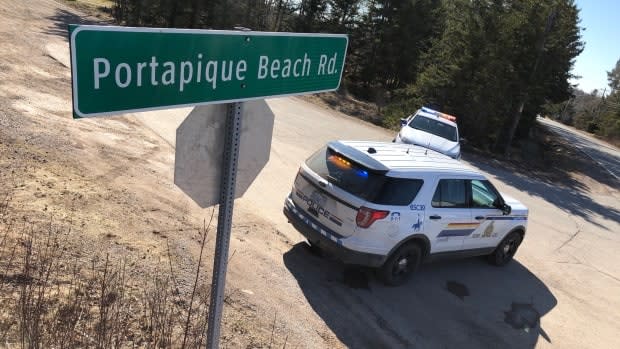
"They're never held to account," said Robert Gordon, a former police officer and a professor of criminology at Simon Fraser University.
"If you go back 20 to 30 years ... there are reports with recommendations about, for example, how to best reorganize the administration of the RCMP, whether or not the RCMP should be disbanded, and so on and so forth. In every instance, I think it would be true to say that, apart from the attachment of the occasional Band-Aid, nothing ever happened."
Last spring, the federal government re-introduced a bill that would codify timelines for the RCMP to respond to public complaints. The legislation doesn't address the matter of verifying that the RCMP has followed through on recommendations.
Leuprecht said the RCMP may be failing to act on such recommendations because it's resistant to change, or because it's simply strapped for resources.
"In many ways, the urgent constantly overtakes the important," he said.
"The Mounties don't have an effective 'lessons learned' cell like the military does. So it has all the resistance to change of a paramilitary organization, but it has none of the mechanisms that military organizations have to do institutional learning, to try to develop leaders, to provide effective leadership selection."
Calls for stronger response from Ottawa
The RCMP said findings and recommendations from inquests, inquiries, reviews or reports are assessed against current policy, procedure and training. Changes are then sent out through "established communication channels."
"For example, new policies or significant updates to policies are often communicated nationally to employees through email broadcasts or the RCMP's internal website," said Boily-Lavoie.
"The RCMP constantly reviews and updates its policies, procedures and training to address identified gaps, including in the aftermath of critical incidents."
Leuprecht said the public safety minister can take a larger role in demanding accountability and binding the commissioner to recommendations.
"We kind of leave it up to the RCMP to decide which recommendations work, which recommendations don't work. There's no real reporting," he said.
"The government is reticent to hold the RCMP's feet to the fire."
Gordon said the job of motivating politicians likely will fall to voters.
"There's not a lot of enthusiasm and there's even less enthusiasm when it comes to the ballot box," he said.
"The RCMP are right up there with Tim Horton hockey. These are great faded icons, you do not attack them. Or if you do, it's at your peril."


